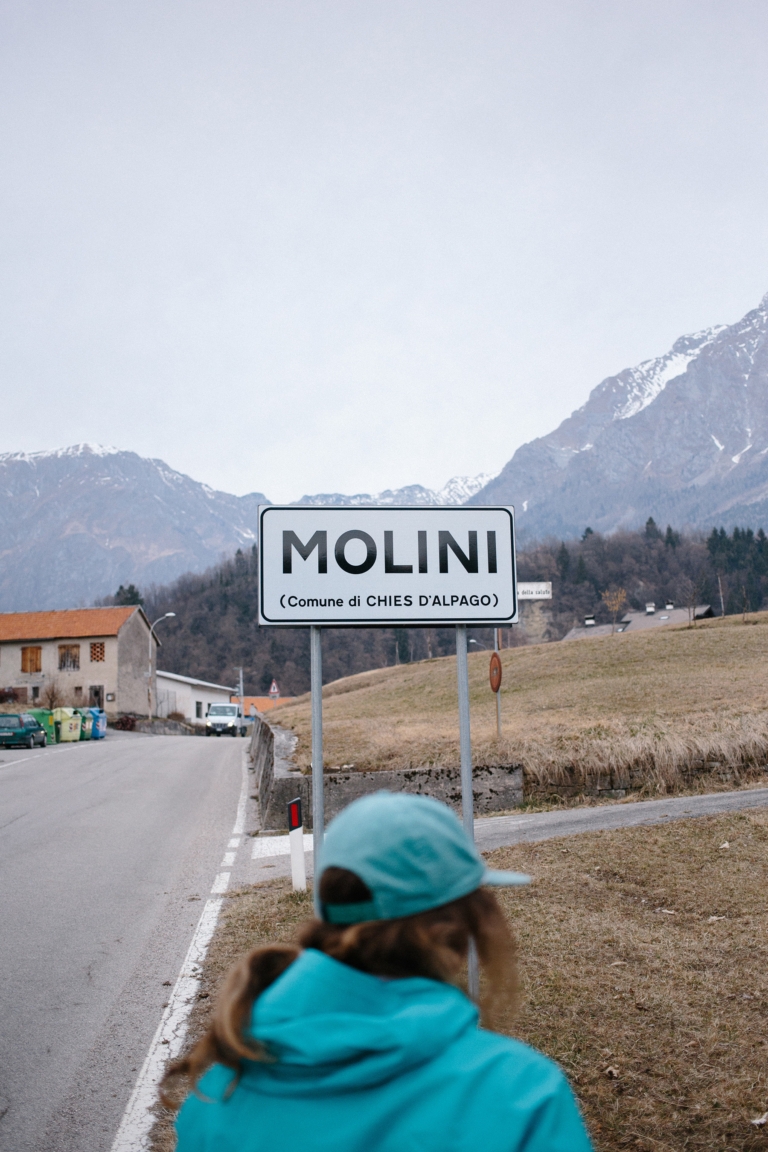Europe’s First Wild River National Park Is Here
Albania’s untamed Vjosa River introduces a new model for global water conservation.
What is a wild river? Have you ever seen one? A sinuous, sweeping movement of water braiding itself into the landscape in multiple meandering directions before ending at the sea, unfragmented by human-made structures trying to tame its flow: This is how a river is supposed to be, left alone to the constant process of emptying and regenerating itself. Rivers are supposed to be like Albania’s Vjosa. Only about one-third of the world’s large rivers are free from human impediments or channelization, and Vjosa is one of the last and largest in Europe. The Vjosa Wild River National Park, the first of its kind in Europe, is now here to protect that—what has been a dream of some for nearly a decade. And this new park will serve as an international example of how to do water conservation right.
A coalition of people—from civil society, business and government—have worked to come up with this new way to safeguard the Vjosa. The regulations will ensure the river remains free-flowing and help protect the 1,100 animal species, some newly discovered and 13 globally threatened, that live there. Not to mention looking out for 100,000 people whose livelihoods, culture and way of life have been tied to a wild Vjosa for centuries. If fragmented, the river itself and the species it hosts won’t be renewable. In the pursuit of taming, we’d destroy.
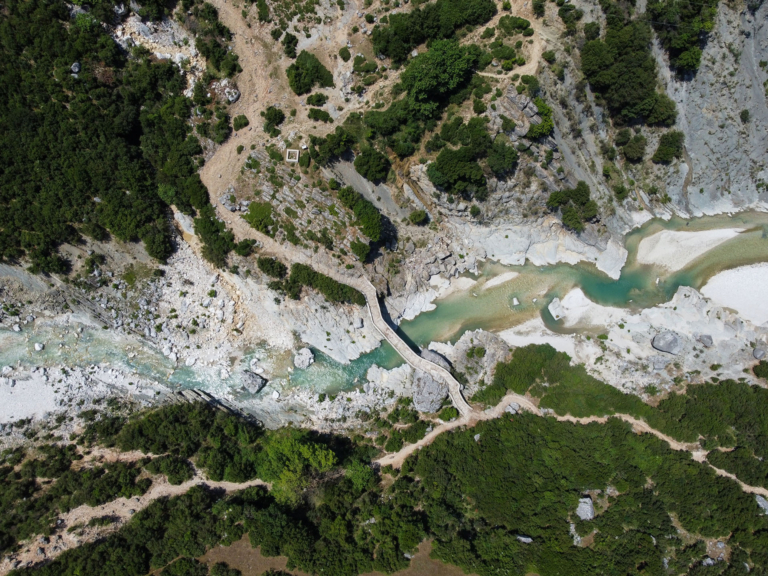
The Shushica River is one of the three tributaries of the Vjosa River that is protected in Phase 1 of the national park declaration. Shushica River, near the village of Brataj, Albania. Photo: Nick St. Oegger
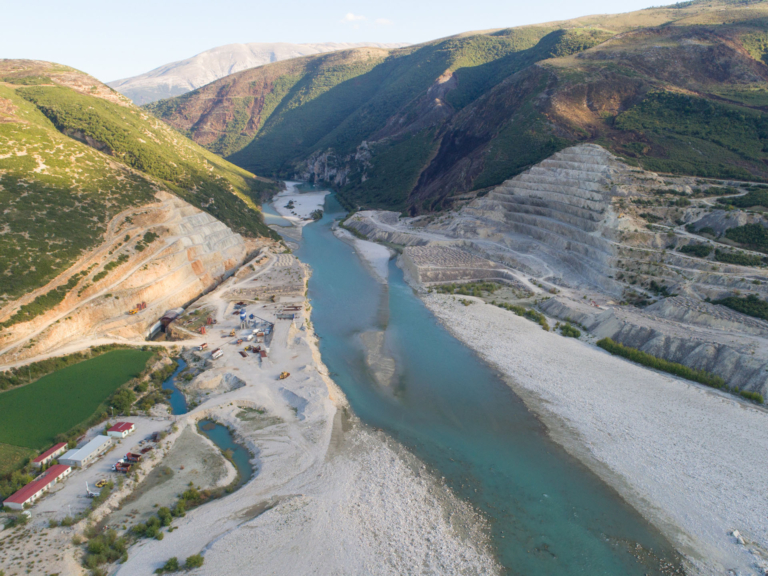
The once-planned site of the Kalivaç Dam on the Vjosa River in Albania. In 2021, the administrative court in Tirana decided the dam would not be built. Photo: Andrew Burr
The Vjosa’s river basin catchment area makes up one-third or more of the land in Albania. It’s massive. Phase 1 of the Vjosa Wild River National Park, as established on March 15, 2023, is a long, narrow 20,000 hectares (nearly 50,000 acres), with 400 kilometers (around 250 miles) of protected river running freely from the border of Albania and Greece to the Adriatic Sea, and includes three tributaries. Phase 2 hopes to protect more tributaries, expand into Greece to include the river’s headwaters and add more of the river basin.
There are no shortcuts in a project like this; it takes time and an investment in relationships, plus some money helps. It’s a model based on the participation of all actors of society working together, each pulling their own lever and building trust in the other partners.
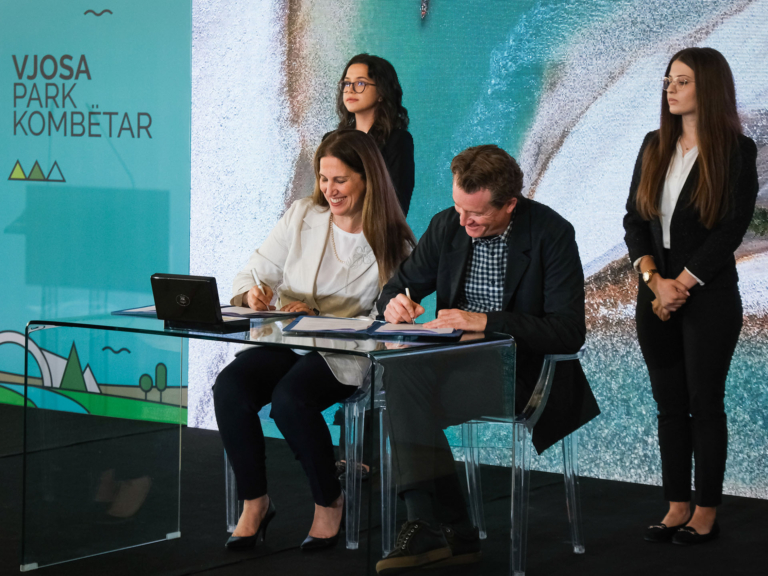
Albanian Minister for culture and environment, Mirela Kumbaro, and Patagonia CEO Ryan Gellert sign a Memorandum of Understanding for the creation of the Vjosa National Park, on June 13, 2022 in Tirana, Albania. Photo: Nick St. Oegger
“Everyone has come together and put aside history, ego and other complications that might get in the way,” says Patagonia CEO Ryan Gellert, who has been an advocate of a free Vjosa since the night he slept on the river’s banks back in 2016. “It’s been slow and steady, but everyone is committed to listening to each other’s pain points. This is basic diplomacy, but it works. Let’s face it, world leaders are seeing pressures from citizens and business to change in a way that’s historically unparalleled. And we’re increasingly understanding that we’re all dependent on the same living planet. The current lesson from Vjosa is that these things can be done and they’re worth doing.”
With Vjosa, there’s still more of the river system to protect, ongoing diplomacy talks and, for us at Patagonia, landing a few other scenarios—where business steps in to support both the citizens pushing progress and the governments balancing the needs and necessities of their countries.
Albania had unique hurdles to overcome before government attention could be turned toward a river. “After the communist dictatorship fell in the ’90s, Albania had so many critical problems to resolve. We were survivors in the ’90s. After, in the 2000s and 2010s, we were building a state, a democratic society with the rule of law which didn’t exist before, and this was crucial for our lives,” says Mirela Kumbaro, Albania’s minister of tourism and environment, who was previously a professor of intercultural communications before taking a position with the government in 2013. “But in 2013, we finally had the space to start creating a vision of how Albania should be. To answer the question, how will the Albania where I raise my kids function?”
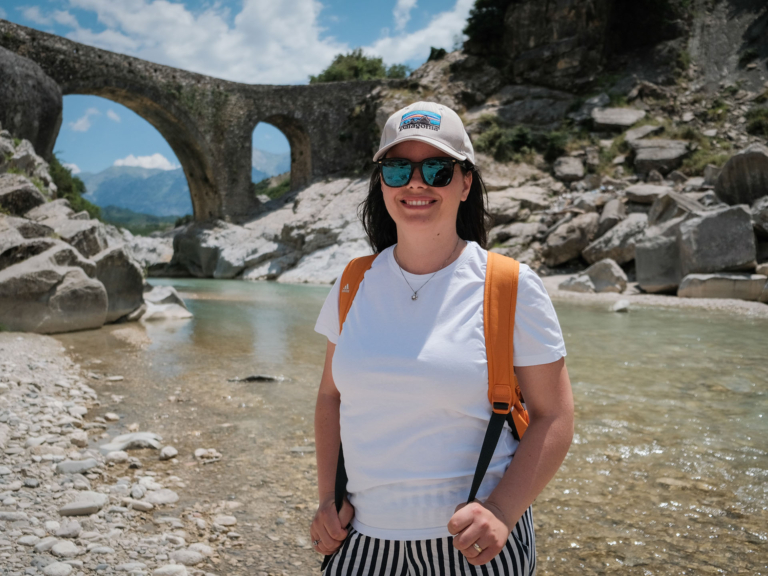
Albanian Besjana Guri always loved the Vjosa, but after having a daughter, her journey to protect the river took on even more meaning. “Protecting the Vjosa was my life’s mission,” she says. “And I would do everything to make it happen.” Photo: Nick St. Oegger
“Becoming a mother made me more connected to the river. It changed the way I saw everything and made me even more convinced that protecting the Vjosa was my life’s mission and I would do everything to make it happen,” says Albanian Besjana Guri, cofounder of EcoAlbania. She has worked on the campaign to protect the Vjosa for almost 10 years. When asked what her daughter should know of this moment of success, Guri said, “I want her to be proud of her mom and be proud of what her mom did. I want her to take these lessons for her life: to be responsible and careful about people and the environment.”
International attention has helped the Vjosa’s case. But the question remains whether this will catch on globally. Which rivers are next? As Minister Kumbaro once asked, “For the rest of the developed world who have come to Albania and are telling us we must save the Vjosa: Why is it one of the last wild rivers? Where are the others? Who’s next?”
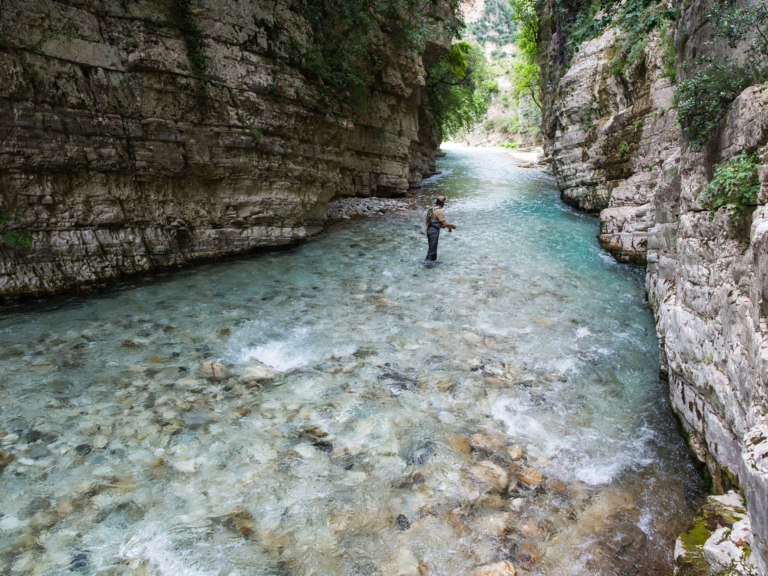
Often experienced as a place, we go to rivers, make pictures of them, swim, bathe, bask in them. But a river is dynamic, a thing sweeping by, a thing in constant motion. Greek philosopher Heraclitus said you never step in the same river twice. Slovenian kayaker and river lover Rok Rozman stands in the current. Photo: Andrew Burr

